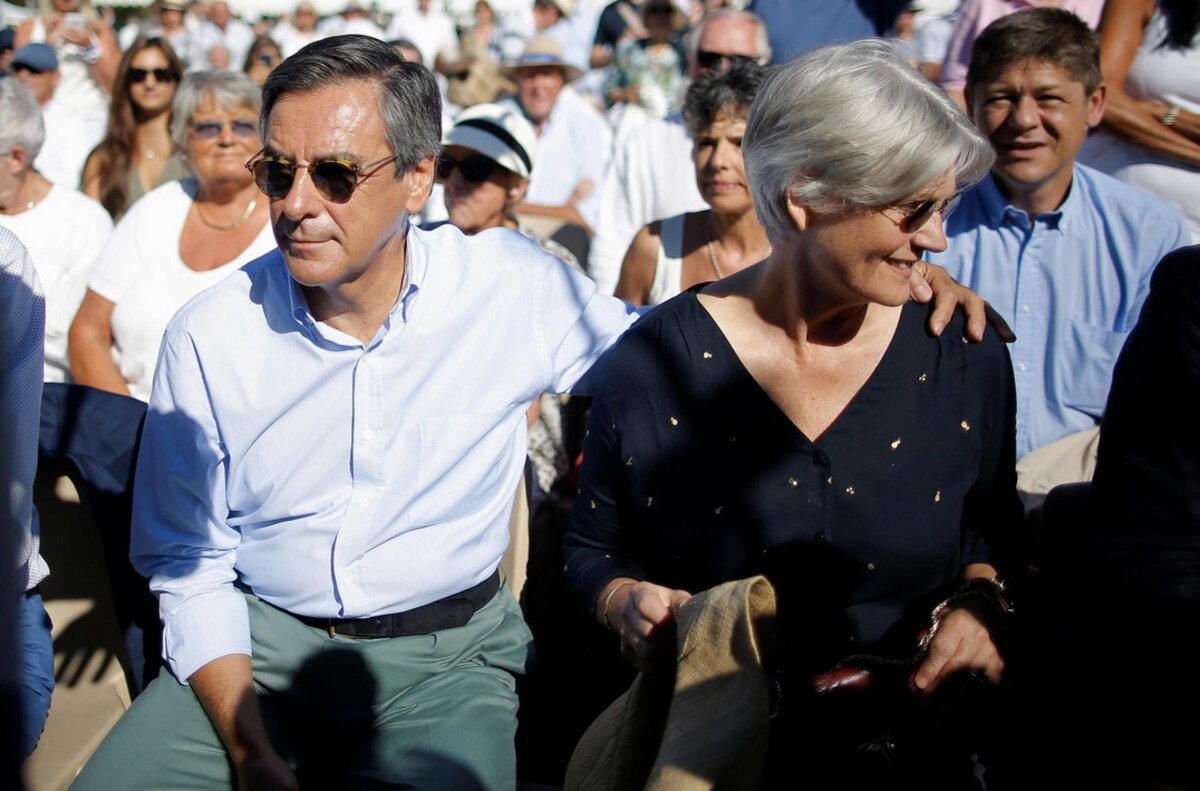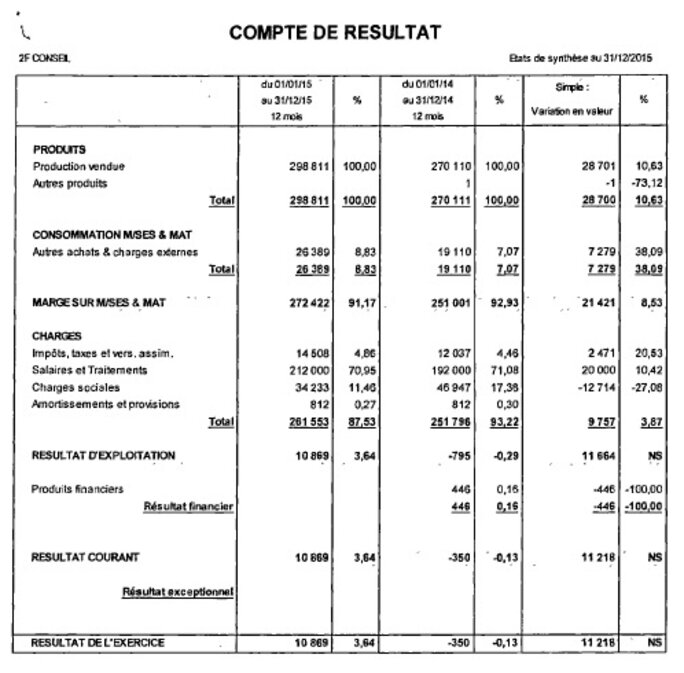Until this week, François Fillon’s image sharply contrasted, in his favour, with that of Nicolas Sarkozy, under whose presidency Fillon served as prime minister from 2007 to 2012.
Unlike Sarkozy, Fillon was not one to be photographed cruising on yachts or celebrating in the company of the rich and famous at the Fouquet’s restaurant on the Champs Elysée. He eschewed the former president’s bling-bling style, and while Sarkozy, since he left office, has been – and remains – implicated in numerous corruption scandals, Fillon has never been the subject of a judicial investigation. Until now.
With a dry public image of morality and rigour, Fillon won the conservative Les Républicains party primaries in November to become its candidate in France's presidential elections to be held this spring. During the bitter rivalry of the campaigning, Fillon had referred to Sarkozy’s legal woes, at one point asking: “Who could imagine General de Gaulle placed under investigation?” In the two-stage party contest, Sarkozy was eliminated in the first round before Fillon emerged from the final round play-off against Alain Juppé with a comfortable majority.
Many political observers soon tipped Fillon as the most likely candidate to become France’s next president. “Until now he was behind, now he’s at the front,” gleefully commented a key member of Sarkozy’s 2012 re-election bid, whose name is withheld here.
But shortly after his election as the Républicains candidate, investigative and satirical weekly Le Canard Enchaîné revealed that Fillon had earned in excess of 600,000 euros between 2012 and 2015 from a consultancy company he created days before his election in 2012 as a Member of Parliament (MP) for a Paris constituency. He has refused to disclose the identities of his clients.
This week, Le Canard Enchaîné revealed that his British-born wife Penelope was paid a total of 500,000 euros from public funds between 1998 and 2012 for acting as his parliamentary assistant. While MPs are entitled to hire family members as assistants – and many do – the Canard Enchaîné cast doubt on whether Penelope Fillon actually carried out the work she was paid for.

Enlargement : Illustration 1

The report also disclosed that she had also received, between 2012 and 2013, about 100,000 euros by a monthly review, La Revue des Deux Mondes, owned by Marc Ladreit de La Charrière, a wealthy businessman close to François Fillon. The remuneration was for writing articles, although very few were apparently published. In an interview with French daily Le Monde, Michel Crépu, who was in 2012 the review’s editorial director, said Penelope Fillon was engaged to write for the magazine on the initiative of Ladreit de La Charrière. “One afternoon, Marc Ladreit de La Charrière called me and said to me ‘Penelope Fillon is bored, could she review a few books?’”, recounted Crépu.
In a separate interview with weekly news magazine Marianne, Crépu said he had “never had any dealings with her, neither physically, nor on the phone, nor even by email”. Marianne reported on Thursday that it had found just two published articles written by Penelope Fillon under the pseudonym “Pauline Camille”, and which totalled about 600 words.
On Wednesday January 25th, hours after the publication of Le Canard Enchaîné’s revelations, the financial crime branch of the public prosecutor’s office opened a preliminary investigation into suspected “misappropriation of public funds” and “receiving” the proceeds. It is also investigating “misuse of company assets” and “receiving” the proceeds with regard to the payments allegedly made to Penelope Fillon by the Revue des Deux Mondes.
The events represent a spectacular upset to the austere and virtuous image of the couple who, it is now alleged, partly lived off public funds, the generosity of a wealthy businessman friend, and the remuneration of mysterious clients for unspecified consultancy services.
In October 2013, following Mediapart’s revelations that socialist finance minister Jérôme Cahuzac had evaded taxes through a secret foreign bank account, the French parliament adopted a law to regulate “Transparency in public office”, with a series of measures to encourage probity in politics. One of these required MPs, as of 2014, to disclose their “activities and financial interests” and that of their spouses at the time of their election.
Fillon became an MP for a Paris constituency in June 2012, when his conservative government was ousted from office by the socialist victory in legislative elections (which followed François Hollande’s election as president in May that year). In January 2014, Fillon filled in his declaration of “activities and financial interests” relating to the time of his election as MP in 2012. Regarding his wife, he declared that she was then a “Contributor Revue des deux mondes”. But he did not declare her contract as his parliamentary assistant, which began in July 2012 and ended in December that year, and for which she was paid a monthly gross sum of 4,600 euros. That was never made public until the report published on Wednesday by Le Canard Enchaîné.
Penelope Fillon’s first employment as her husband’s parliamentary assistant began in 1998, when he was then an MP for a constituency in the Sarthe département (county) in north-west France, his political fiefdom. When Fillon entered government in 2002, as labour and social affairs minister, he was required to step down as MP, handing over representation of the constituency to his designated deputy, Marc Joulaud, for whom Penelope Fillon continued to work as assistant.
A law introduced in 1997 placed a ceiling on how much an MP’s spouse was allowed to earn as their assistant. But that requirement was no longer in place in 2002, allowing Penelope Fillon to obtain a 50% rise in salary, up from a gross monthly sum of 4,600 euros to 6,900 euros. In 2006, this was raised again, to 7,900 euros per month. Mediapart understands that at that time the parliamentary funds allocated to MPs for the payment of all their staff amounted to 8,800 euros per month.
According to Le Canard Enchaîné, one of Marc Joulaud’s assistants was a technical advisor on the payroll of the labour and social affairs ministry, which was then headed by Fillon. In 2007, after Nicolas Sarkozy’s presidential election victory in May, François Fillon was appointed as prime minister, and Penelope Fillon’s contract as parliamentary assistant came to an end. She resumed the role in July 2012, for a period of six months.
In May 2007, Penelope Fillon, a mother of five who is a municipal counsellor in the village of Solesmes, in the Sarthe département, gave an interview to The Sunday Telegraph in which she commented that she had then recently begun an Open University degree course in English literature. "I realised that my children have only known me as just a mother but I did a French degree, I qualified as a lawyer and I thought 'Look here, I'm not that stupid',” she told the paper. “This will get me working and thinking again."
In October 2016, Penelope Fillon attended a meeting in Dijon in support of her husband’s bid for the Républicains party nomination as presidential candidate. She gave an interview to the local newspaper Le Bien Public in which she said: “Until now, I never involved myself in my husband’s political life.”
The mystery surrounding Fillon's consultancy work
Following Le Canard Enchaîné’s revelations, François Fillon’s political allies gave confused accounts of Penelope Fillon’s work. Bernard Accoyer, conservative former speaker of the lower house, the National Assembly, told France Inter radio that he had “often” seen her working with her husband. “I saw her numerous times,” he said, “including at the National Assembly. Listen, I don’t know the details about her work.” Meanwhile, conservative senator Bruno Retailleau suggested that Penelope Fillon carried out her work as her husband’s assistant in their country base in the Sarthe. “Go to the Sarthe and ask if Penelope Fillon is seen or not seen,” he told TV channel LCI. “Obviously much less in Paris. Obviously, the media prism is the Parisian prism.” Fillon’s spokeswoman Florence Portelli told France Info radio: “If Mrs Fillon was not seen at the Palais Bourbon [editor’s note: the National Assembly], it’s because Mrs Fillon was in the Sarthe. When you are a parliamentary collaborator of a provincial MP you represent them also in the provinces.”
Meanwhile, Fillon himself has so far not produced evidence in public, such as documents or emails, to demonstrate the work his wife was hired to produce. He has asked to be “rapidly” questioned by the public prosecutor’s investigation which, he said, “will allow a campaign of calumny to be silenced”, and was due to appear on French television on Thursday evening to answer questions about the allegations. His first reaction in public, when he was questioned by reporters during a visit to Bordeaux on Wednesday, was to dismiss as “misogynous” the Canard Enchaîné report. “Because it’s my wife, she wouldn’t have the right to work?” he said. On the website of the municipal council of Solesmes, she is presented as “62-years-old, stay-at-home mother”.
Until now, François Fillon has also refused to disclose the number and nature of the clients of his apparently lucrative consultancy firm, 2F Conseil. It was created on June 7th 2012, just days before his election as MP. The timing was important because serving MPs are barred under parliamentary regulations from taking up activities as a consultant during their term of office, in order to avoid potential conflicts of interest. Last November, Le Canard Enchaîné disclosed that between 2012 and 2015, the company, which has no staff and is headed by Fillon alone, paid Fillon more than 600,000 euros, far more than his salary as MP.

Officially, most of the firm’s income comes from conferences, including one given in 2013 in Kazakhstan, the oil-rich Central Asian state under the authoritarian rule of former Communist Party chief Nursultan Nazarbayev. A member of Fillon’s entourage, questioned by French radio Europe 1’s political affairs magazine, Le Lab Politique, said his appearance as guest of honour at the conference in the Kazakh capital Astana was to give a talk, in English, on the theme of “new energy perspectives”.
Apart from those public appearances that are recorded, a person close to Fillon told Le Canard Enchaîné in November that the former prime minister also received payments for “a few analyses of current issues, and reports on the state of international relations”.
Speaking during a recent video interview with Mediapart, held before this week’s revelations, Yannick Jadot, the presidential election candidate of the Green party EELV, commented: “I suspect that François Fillon is financed by a certain number of companies whose names I would like to know to find out if his programme, potentially his [political] action, [would be] impacted by the clients he might have had.”
“He has decided to be accommodating with Vladimir Putin, I consider that to be political corruption,” added Jadot.
-------------------------
- The French version of this report can be found here.
English version by Graham Tearse


